|
|
|
The wonder years
( 2003-09-22 12:21) (thatsmagazines.com)
I often wonder what life would have been like
had I grown up here in Beijing and not in the little Upstate New York town where
I was born. When I hang out with friends from Beijing my age and listen to them
reminisce about growing up here in the 70s and 80s, even as I count my blessings
for having grown up safe and suburban in the States, I can¡ät help but feel a
little envy for what Beijingers my age have experienced.

Deng
Lijun |
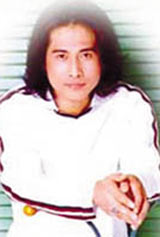
Qi Qin | Growing
up where and when they did inevitably shaped Beijing¡äs thirtysomethings. The
experiences they share really set them apart from generations above and below
them. They¡äre a lucky bunch, blessed with the best of both worlds - traditional
and modern, Chinese and foreign. They¡äre broad-minded and cosmopolitan but never
slavishly obsessed with Western culture, ironic and often cynical without being
negative or nihilistic. I¡äm lucky to count many of them among my friends, and as
they¡äre due much of the credit for making my life in Beijing so enjoyable, I¡äm
interested in just what makes them who they are.
Beijing¡äs thirtysomethings - born, say, between the mid-60s and the early 70s
- are old enough to remember the days before the reform and opening program, but
were young enough then to recall those times with only an innocent fondness:
simplicity, honesty, idealism. They may have experienced privation, but they
missed the worst of it - the Three Bad Years of ¡ä59-¡ä61 - and it left them
unscarred: They weren¡ät sent down to the countryside, their education disrupted
by political upheaval as it was for the generation above them.
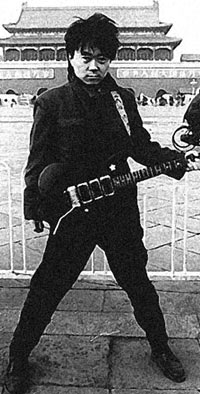
Cui Jian | By the time
they entered adolescence, the Deng era reforms were already underway. Most
remember the waning days of the cultural revolution, and certainly the big
events of 1976: The Tangshan earthquake of July 28, the death first of Zhou
Enlai and then of Mao Zedong. They remember the sudden fall of Jiang Qing and
the rest of the Gang of Four, and Deng¡äs second coming, grasping the historical
moment without being old enough to feel any sense of disillusionment or betrayal
at the ideological shifts these events ushered in.
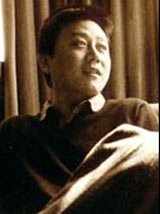
Wang
Shuo | It was this generation that really seized
the opportunities presented by reform and opening to pioneer whole new realms of
culture. As kids they watched popular consumer culture develop from practically
nothing to what it became by the late 1980s, beginning with the arrival of
Taiwan songstress Teresa Teng¡äs (Deng Lijun¡äs) first bourgeois pop in the late
1970s. They fed on musical pabulum like John Denver and the Carpenters before
they could swallow Michael Jackson or Wham!. Along the way, they embraced break
dancing, fast food, makeup, perms and blue jeans.
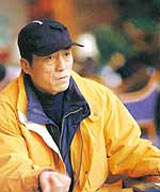
Zhang Yimou | It was
Taiwan¡äs Qi Qin and, more importantly, homegrown hero Cui Jian, who really wrote
the soundtrack to their coming-of-age and inspired some to rock star dreams of
their own. They were the first to use the word "cool" - ku - and understand it
implicitly. Long before VCDs became ubiquitous, dedicated film buffs swapped
videotapes, inspiring young filmmakers like Zhang Yang and Wang Xiaoshuai -
representatives of the so-called "Sixth Generation" - to deliver this
generation¡äs answers to the lavish productions of Zhang Yimou and Chen Kaige
before them.
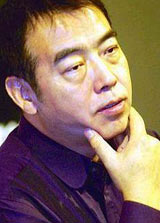
Chen Kaige | As kids
they all read Jin Yong martial arts epics and the classic Chinese novels before
graduating to Wang Shuo novels and an awakening sexuality. They were the first
to break from their parents¡ä lifestyle economically as well. Economic life for
them began after the Iron Rice Bowl had rusted and cracked, and many Beijingers
of this generation chose to find work on their own rather than taking
government-assigned jobs out of school. Many would eventually find work in the
high tech, especially during the Internet boom years. Bright minds from this
tech- and media-savvy formed the vanguard of China¡äs Internet revolution.
Most thirtysomethings have at least one sibling, born as they were before the
one-child policy kicked in, and so they tend not to suffer the same afflictions
of the "Little Emperors" that followed them - overdependence on their parents,
self-centeredness, ADD and obesity. Unlike many of the generations above them,
Beijing¡äs thirtysomethings have never been overwhelmed by change, alienated and
unable find their footing. And unlike the generation below them, which tends to
take the warp speed development they¡äve grown up with quite for granted, they¡äre
entirely appreciative of the scale of change and the world that it has opened up
for them.
|
|
|
| |
Go to Another
Section |
|
| |
|
|
| |
|
| |
|
|
| |
Article Tools |
|
| |
|
|
| |
|
|
| |
|
|
|
|
|
|
 |

